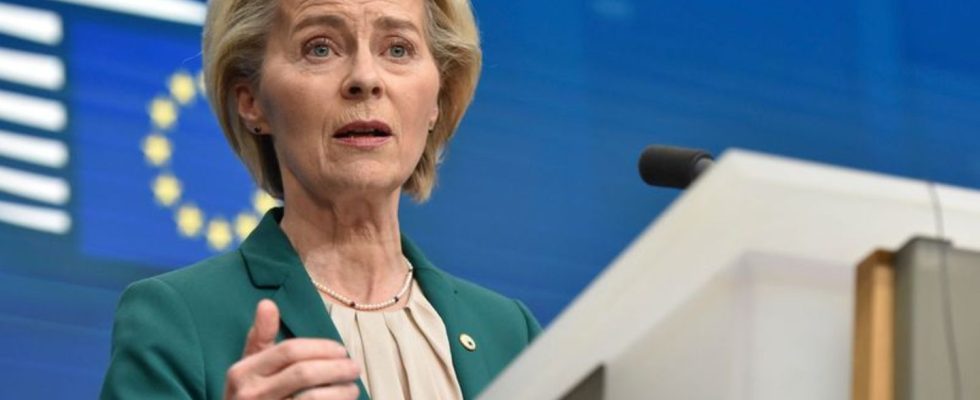Brussels
EU summit for changes to European economic policy
The President of the European Commission: Ursula von der Leyen. photo
© Harry Nakos/AP/dpa
Competition from the East and West is causing headaches for the European economy. This has also reached the highest EU level – a remedy is now being discussed.
The EU is facing increasing competition, especially from the USA and China. Many fear that European companies could be left behind.
The USA, for example, has launched a subsidy program worth billions with its Act to Reduce Inflation (IRA). The cash injections and tax credits are tied to companies using US products or producing them in the US. In the EU this is perceived as discriminatory. There are fears that companies from the EU will migrate to the USA in order to benefit from the subsidies.
The dispute with China is, among other things, about the fact that, from the EU’s perspective, Beijing is distorting the market for electric cars with subsidies. “The price of these cars is artificially depressed by huge state subsidies,” Commission President Ursula von der Leyen recently said. The Commission has therefore started an investigation that could, for example, lead to punitive tariffs.
Discussions about the competitiveness of the EU economy
At the summit, the heads of state and government discussed, among other things, how the EU economy can become more competitive. The basis is a report by the former Italian Prime Minister Enrico Letta. In it he argues that there should be stricter rules for state aid at the national level, but more state money for companies at the EU level. “Specifically, we could imagine a state aid contribution mechanism that would require Member States to allocate part of their national resources to finance pan-European initiatives and investments.”
In the summit declaration, the heads of state and government welcome the debate with Letta on his recommendations. They also write that work on the recommendations contained therein should be progressed by the end of the year. In addition, Chancellor Olaf Scholz and his colleagues are calling on the Commission to significantly reduce the bureaucratic burden on companies and national authorities.

